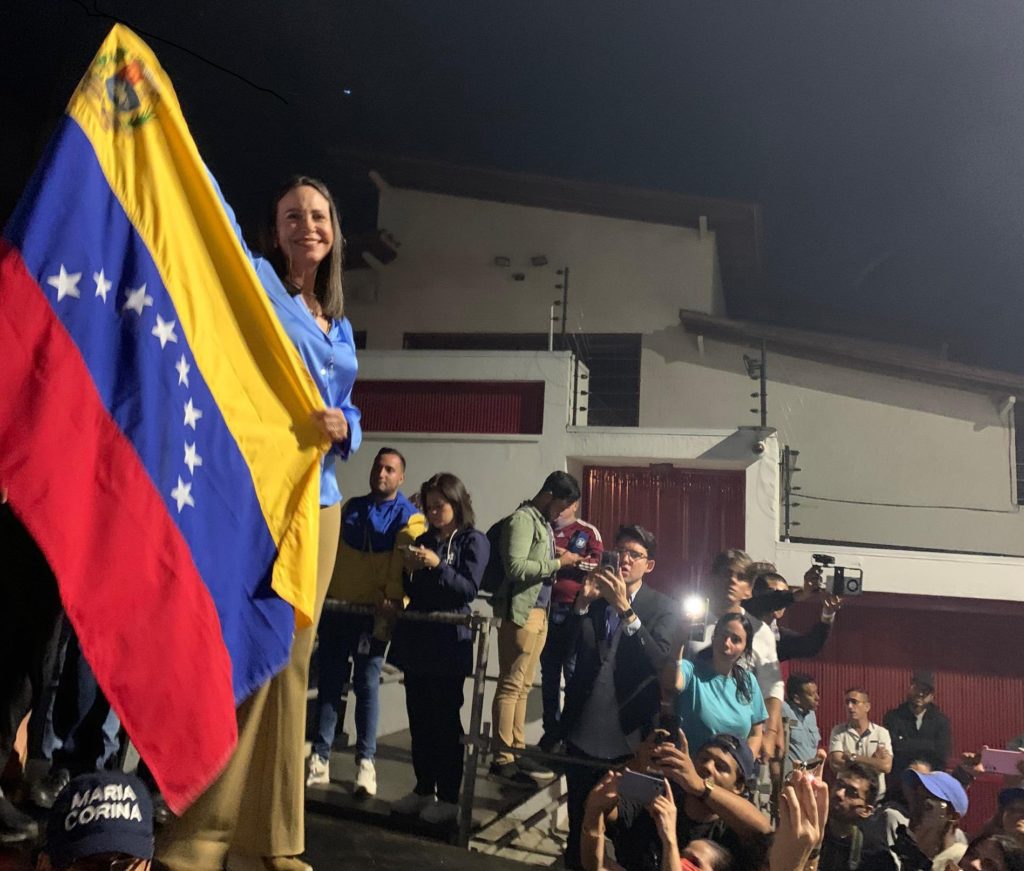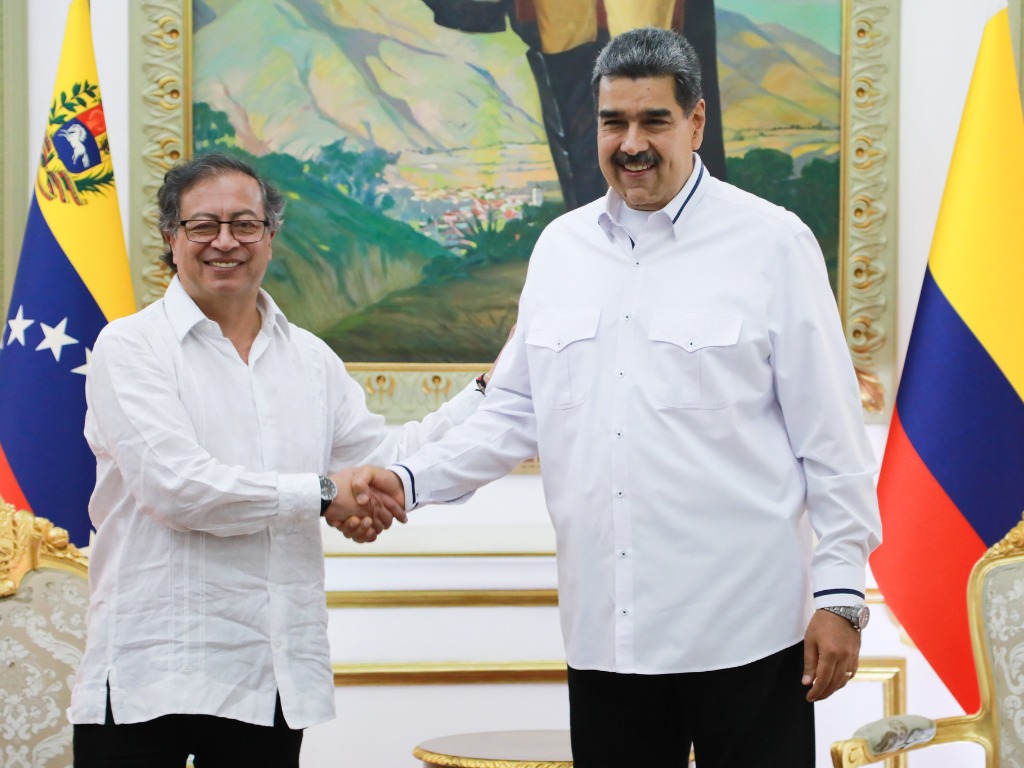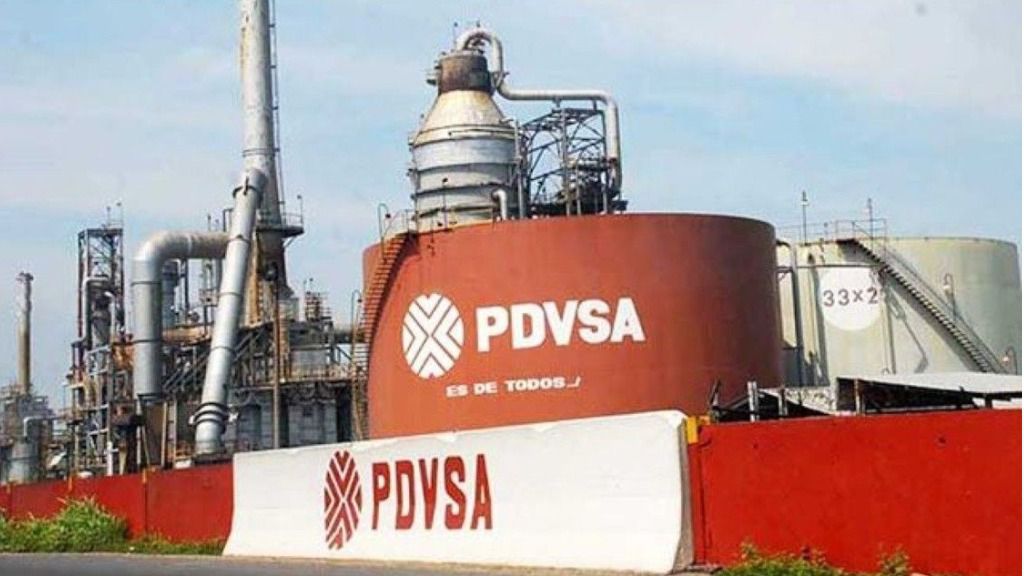
The disqualified Venezuelan opposition leader, Maria Corina Machado, will study the referendum proposal made by the Colombian president, Gustavo Petro, for Venezuela. Machado assured that the option of the Colombian head of state to settle the political situation in the country “deserves reflection and discussion” to achieve a democratic pact for Venezuela.
Next July 28 there are presidential elections, for which several opposition candidates have been disqualified, among them Corina Machado herself, who obtained an overwhelming support in the internal opposition consultations. Edmundo Gonzalez Urrutia was, finally, the candidate presented by the Unitary Platform led by Machado and which will compete with Nicolas Maduro, and other minor candidates, for the Venezuelan presidency.
Petro proposed the referendum to President Lula
Gustavo Petro’s proposal was made to Brazilian President Lula da Silva during his official visit to Bogota, where he participated in the inauguration of the International Book Fair of Bogota. In the Colombian capital, Lula held a long meeting with the Colombian head of state at the Nariño Palace.
The referendum, Petro said, could be held within the framework of the same elections scheduled for three months from now. With the purpose of seeking a “democratic pact”, the vote should “guarantee the life and rights of the participants in the elections”, as announced by the Colombian president.
When he shared the offer to President Lula, Gustavo Petro confirmed that the proposal had already been made to both the Maduro government and the Venezuelan opposition.
Machado, however, said that the referendum is not contemplated in the current Venezuelan Constitution, so it could be challenged as illegal. For the opposition leader, disqualified from holding public office for 15 years, “the objective of achieving a process of agreements on guarantees and institutional safeguards for a transition process is an absolute priority”.
Colombia’s role in Venezuelan politics
Since President Petro came to power in August 2022, the country reopened to Venezuela. Borders were opened and trade agreements were recovered. Meetings between the leaders of the two countries have been constant in this scarce year and a half. On up to five occasions, Petro and Maduro have met both in Bogota and Caracas.
This recovery of relations, however, has not been without controversy. For the Colombian opposition, it represents a whitewashing of the Venezuelan regime. For weeks Petro was criticized for his silence on the disqualifications of opponents in the neighboring country, although finally the Colombian president strongly criticized them, provoking some diplomatic disagreements between the foreign ministers of the two countries.
Colombia’s role has been, as in the past, a major one in the Venezuelan crisis. Receiving almost two million migrants from the neighbouring country during the presidency of Ivan Duque, Colombia was a firm opponent of Maduro, recognizing the interim presidency of the opposition leader Juan Guaido, who enjoyed a privileged status on Colombian soil.
With the change of president in Colombia, and the arrival of the left to power, the strategy has changed. Colombia seeks, with détente, what was not achieved in the past: that democratic rights be respected in Venezuela. The first scenario is, no more and no less, the presidential elections in July.

Sanctions on Venezuela are back
This was more or less the same strategy adopted by the United States, under the presidency of Joe Biden. However, last April 18, the United States resumed the sanctions against Venezuela which, temporarily, had been lifted at the end of 2023. This fact could slow down the economic recovery the country has been experiencing in recent months, driven mainly by the rise in the price of oil.
In the past, sanctions have greatly affected the country’s most vulnerable, causing significant price hikes and shortages of basic food and health products. On the other hand, they have not served to weaken a regime that remains in power, protected by loyal military forces that enjoy important privileges.
In the Barbados Agreements, signed in October 2023 between the Maduro government and the Venezuelan opposition, a commitment was reached to achieve truly free and democratic elections by 2024. However, the Venezuelan justice system, controlled by the political power, disqualified the most important candidates of the opposition, alleging crimes that have not been fully clarified.
Expectations are high, as polls point to a defeat of Nicolas Maduro in these elections, but all eyes both inside and outside Venezuela are on the possible maneuvers of the regime to manipulate the result. In this context, the last sanctions against the country were decreed after the alleged fraud in the 2018 elections, in which Maduro revalidated his mandate, according to the United States with electoral fraud.

See all the latest news from Colombia and the world at ColombiaOne.com. Contact our newsroom to report an update or send your story, photos and videos. Follow Colombia One on Google News, Facebook, Instagram, and subscribe here to our newsletter.

